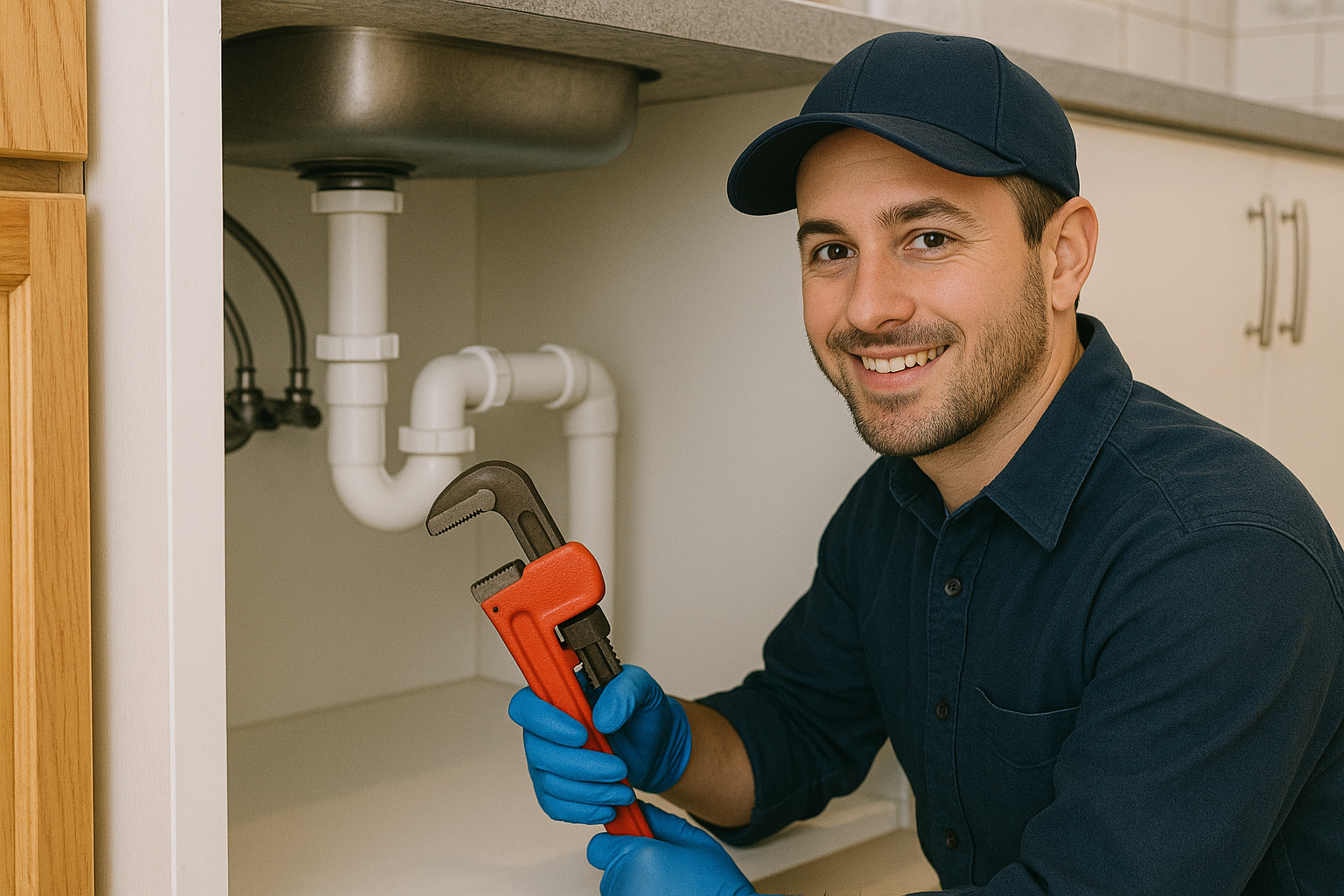Flushable wipes have become a modern-day convenience – used for everything from personal hygiene to quick cleanups. But despite the name, most of these wipes are not truly safe to flush. Unlike toilet paper, which dissolves rapidly in water, wipes are made from durable synthetic fibers designed to stay intact. When flushed, they don’t break down and often combine with grease, soap residue, and hair inside your plumbing. Over time, these materials form dense clogs that restrict water flow and cause severe blockages. To keep your home’s pipes and sewer system in good shape, it’s crucial to understand why flushable wipes are problematic and how to handle them properly. Here are essential tips to help prevent costly plumbing problems.
Why Flushable Wipes Don’t Belong in Toilets
Even though packaging labels say “flushable,” most wipes fail to disintegrate once they’re flushed. They’re typically made with sturdy fibers such as polyester or polypropylene, which resist breaking apart in water. Instead of dissolving, they cling to other debris and create large, sticky masses that block drains. Over time, this can slow down your plumbing or even cause raw sewage to back up into your home. On a municipal level, wipes can form massive blockages known as “fatbergs,” which cost cities millions of dollars to remove. The easiest and most effective way to prevent this is simple – never flush wipes, no matter what the package says.
Tip 1: Throw Wipes in the Trash – Not the Toilet
Even if a wipe claims to be “flushable,” it’s best to treat it like any other trash. Toss all types of wipes – baby wipes, cleaning wipes, cosmetic wipes, or sanitizing wipes – into a waste bin instead of flushing them. They might disappear down the drain, but they’ll remain intact inside your plumbing system for months or even years. Flushing wipes may seem harmless in the moment, but it’s one of the leading causes of plumbing clogs and sewer backups.
Tip 2: Make Proper Disposal Easy for Everyone
To prevent accidental flushing, make it convenient for everyone in your household to throw wipes away properly. Place a small trash bin next to each toilet and clearly label it. Choose one with a lid to keep odors contained and make cleanup quick and hygienic. You can also post a simple reminder sign near the toilet that says, “Only flush toilet paper.” Encouraging this simple habit goes a long way toward keeping your pipes clean and your sewer system clear.
Tip 3: Consider Biodegradable or Reusable Alternatives
If you enjoy using wipes for freshness, try switching to biodegradable or compostable options made from natural plant fibers. While these break down faster than traditional wipes, they still shouldn’t be flushed – dispose of them in the trash instead. Another eco-friendly alternative is a bidet attachment, which offers a clean, sustainable option that eliminates the need for disposable wipes entirely.
Tip 4: Avoid Flushing Other Non-Dissolving Items
Flushable wipes aren’t the only culprits behind plumbing problems. Common bathroom items such as paper towels, feminine products, cotton balls, and dental floss can also create clogs when flushed. These items don’t dissolve in water and can easily catch on rough surfaces in your pipes. Always dispose of them in a waste bin instead of the toilet to protect your plumbing from unnecessary strain.
Tip 5: Install Drain Filters to Catch Debris
Small particles like hair and soap scum can worsen the effects of wipes if they accumulate in your plumbing. Installing mesh drain covers or strainers in your sinks, tubs, and showers prevents debris from entering the drain. Clean them out regularly to maintain good water flow. This small step provides an added layer of protection that helps prevent future clogs and backups.
Tip 6: Practice Regular Drain Cleaning
Even with good habits, it’s smart to clean your drains monthly. A simple, natural solution works wonders: pour half a cup of baking soda followed by one cup of vinegar into your drain. Let the mixture bubble for 10–15 minutes, then flush it with hot water. This natural cleaner helps dissolve buildup, eliminate odors, and keep your pipes running smoothly – without the damage caused by harsh chemicals.
Tip 7: Watch for Early Signs of Clogs
Slow-draining sinks, bubbling toilets, or unpleasant odors are often early warnings of a developing clog. Don’t ignore these signs. The longer you wait, the harder and more expensive the repair becomes. If you notice recurring slow drains even after cleaning, contact a licensed plumber to inspect your system before the issue escalates.
Tip 8: Schedule Preventive Plumbing Maintenance
Even with good care, some buildup is inevitable over time. Schedule a professional drain cleaning once a year to ensure your pipes stay clear. Plumbers use specialized tools such as hydro-jetting systems to safely remove hardened grease and debris. Preventive maintenance helps catch hidden problems before they cause severe blockages or water damage in your home.
Tip 9: Follow Proper Disposal Rules in Public Restrooms
Proper disposal habits shouldn’t stop at home. When using wipes in public or commercial restrooms, always use the waste bins provided. Many public sewer systems face severe issues from people flushing wipes in large quantities. Being considerate in public restrooms helps prevent blockages that impact entire buildings or neighborhoods.
Tip 10: Help Educate Others About the Issue
Many people don’t realize how damaging flushable wipes can be. Share your knowledge with friends, family, and neighbors to help spread awareness. Encourage workplaces, schools, and local facilities to put up signs reminding users not to flush wipes. The more people understand the problem, the fewer plumbing emergencies and environmental hazards will occur.
The Environmental Impact of Improper Disposal
When wipes make it past your plumbing, they often reach wastewater treatment facilities – where they cause further damage. Many are too strong to filter out completely and end up polluting rivers, lakes, and oceans. These wipes contribute to plastic waste, harming aquatic life and releasing microplastics into the ecosystem. By throwing wipes in the trash instead of flushing them, you help protect water quality and reduce pollution that affects both wildlife and communities.
Final Thoughts
Flushable wipes may offer convenience, but the damage they cause to plumbing and the environment makes them far from worth it. The safest and simplest solution is to never flush them – dispose of wipes in the trash instead. Combine this habit with regular drain cleaning and annual plumbing maintenance to keep your system healthy. By being mindful of what goes down your toilet, you can avoid costly repairs, protect your community’s sewer systems, and help preserve the environment for future generations. Remember: only toilet paper and waste belong in the toilet – everything else should go in the bin.

